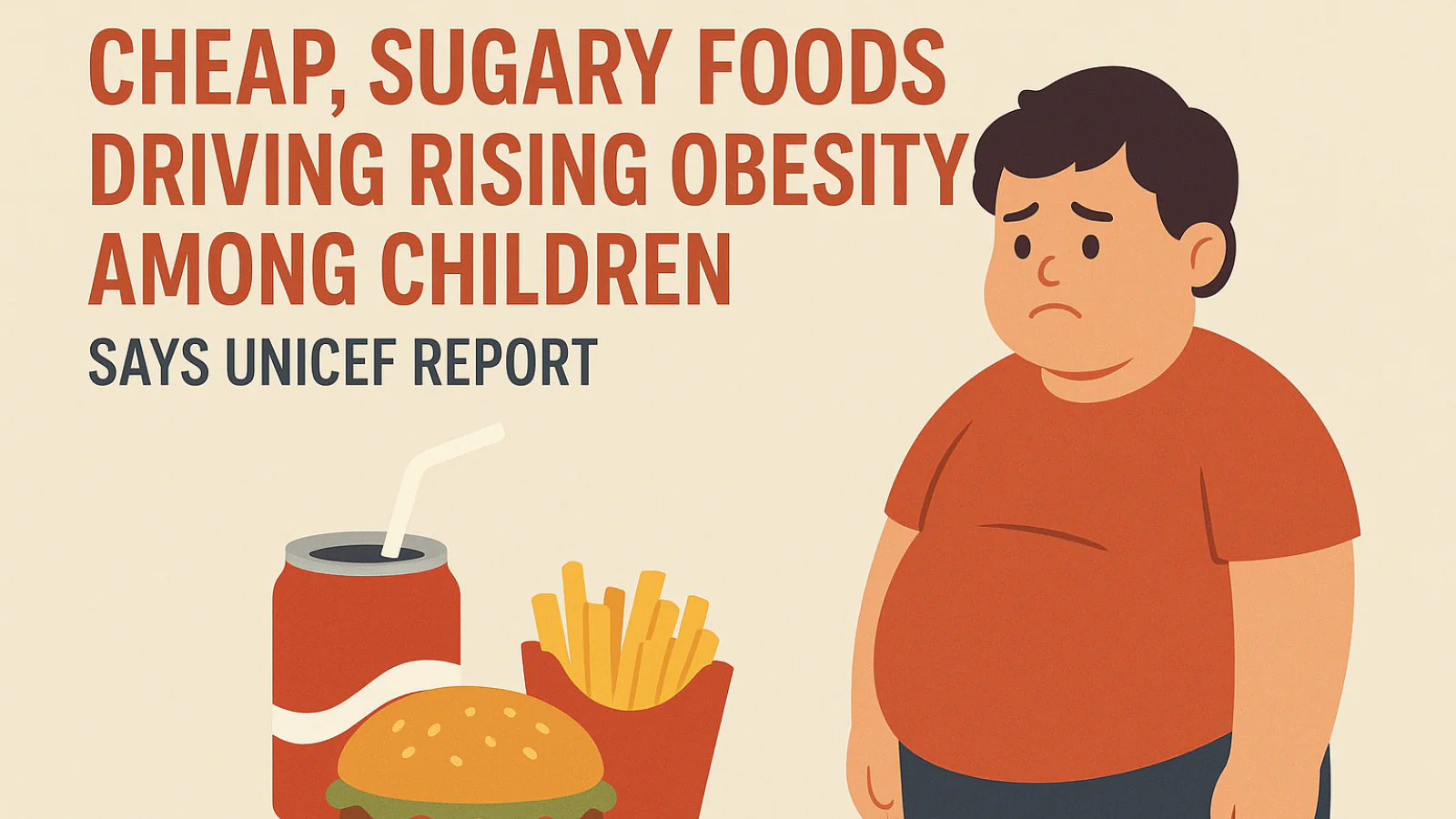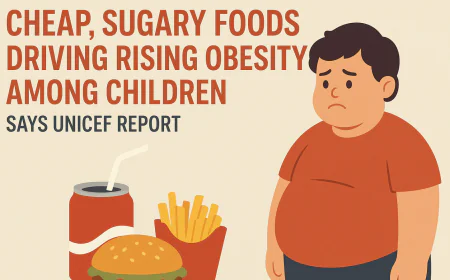Cheap, Sugary Foods Fuel Rising Childhood Obesity, Creating Global Double Burden Of Malnutrition: UNICEF Report

When the word malnutrition comes in the minds, everyone imagines thinness, weakness, and hunger. The term has been associated with undernourishment in the past. But the experts in the health department now warn that malnutrition is not only about food deficiency—it is more closely associated with obesity and lifestyle disorders like diabetes.
By 2025, the UNICEF projects that school-aged children and adolescents living with obesity will exceed those living with underweight conditions by a landslide of a global change. The change holds grave risks not just to health but also to the social and economic development of entire countries and communities.
The UN agency's Child Nutrition Report identifies unhealthy food environments as one of the main causes of this crisis. Dr. Rajeev Jayadevan, Chairman of the Scientific Committee of the Indian Medical Association in Cochin, makes clear: "When we hear about malnutrition, we think of skinny children. But now, malnutrition can lead to obesity as well. Low-income families tend to purchase inexpensive foods containing a lot of sugar and fat, but little nutrients."
Also Read: Say Goodbye To Rubbery Paneer: 3 Easy Tips To Keep Fried Paneer Soft And Tender
Sweetened beverages, heavily promoted and sponsored by celebrities, are a case in point. Although cheap, these are major contributors to obesity and diabetes. Well-educated and health-conscious people tend to select protein-high, fiber-rich diets with lots of fruits, vegetables, and water, reflecting the extreme disparity in knowledge and price.
Experts also warn that malnutrition does not end with one generation. Malnourished mothers tend to have children who are preprogrammed to become obese, especially when they subsequently have access to plentiful, high-calorie diets.
This was seen in a study released in Cell Metabolism by Indian scientists. It looked at 50 generations of undernourished mice and found elevated levels of insulin and reduced vitamin B12 and folate. Even when later generations received nutritious food, the metabolic changes continued—proof of long-term epigenetic impact.
Dr. Sanjeev Galande, Dean at Shiv Nadar University and an author of the study, called this the "double burden of malnutrition."




























































